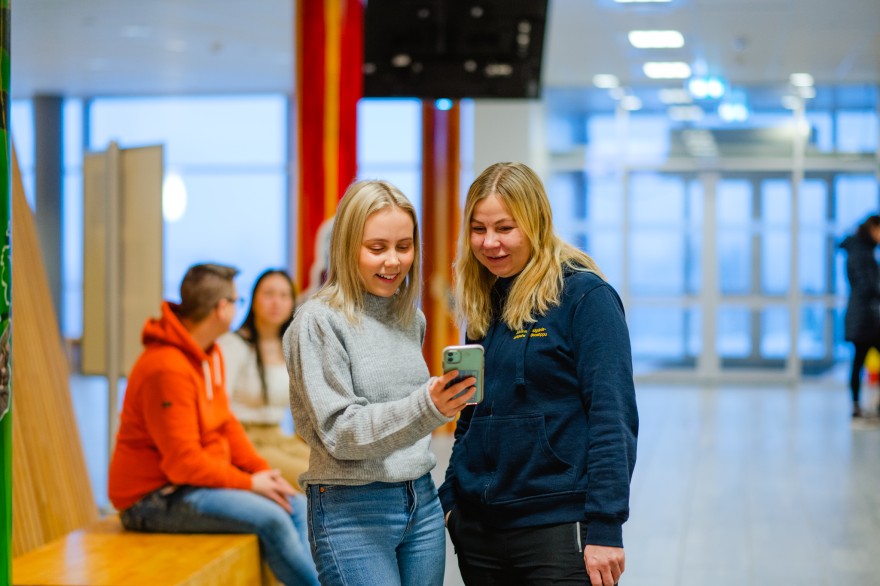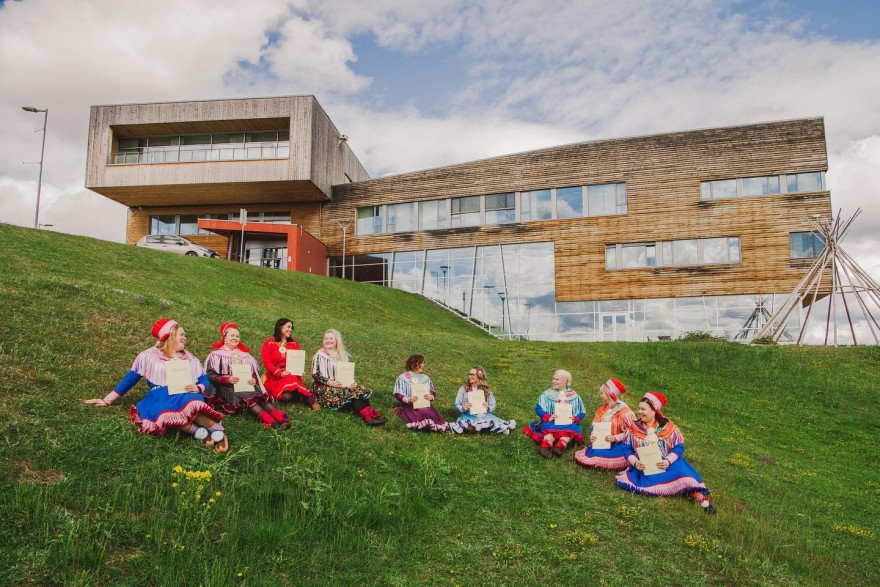Why choose Sámi University of Applied Sciences?

Are you considering becoming a student at Sámi University of Applied Sciences?
- Look no further, here we have gathered all the information that you need.
Sámi University of Applied Science(SUAS) is unique in many ways. First of all, we are the only all-Sámi University in the world, and one of very few all-indigenous higher education institutions. Whereas many other Universities around Scandinavia can offer studies in Sámi language or about Sámi culture and society, at SUAS we use the North Sámi language in both research, studies and management, as the only University of Applied Sciences in the world. The University has a pan-Sámi profile with students and staff from all around the Sámi region. We are a small institution with an international environment. Our areas of competence include teaching & pedagogy, Sámi language and literature, social science, indigenous journalism, Sámi traditional handicraft (duodji) and reindeer herding. We also educate Sámi student ambassadors, offer indigenous studies in English for international student, and conduct study tours for our students to other indigenous areas. SUAS is part of UArctic, a cooperation between Universities in in the Arctic areas, and we are accredited at the highest level in the network World Indigenous Higher Education Consortium. If you do not master the Sámi language, you can learn it here! Read more about our story here

Graduation day 2021 - Photo: Ánne Kátjá Gaup/Johtti Productions
Our campus
SUAS is located in Diehtosiida – which in Sámi means science center, or a scenter for knowledge. We share the building with amongst others the Sámi Parliament, the Sámi Archives and the Norwegian National Center for Human Rights, to mention some. Diehtosiida is an international knowledge center for Sámi and indigenous peoples, gathering Sámi science and Sámi language to a wider scientific environment. Diehtosiida is a modern information and communication center, where traditional knowledge and science meet.
SUAS is situated in Kautokeino / Guovdageaidnu. The name of the village in Northern Sámi, Guovdageaidnu, means "in the middle of the road" and has from ancient times been an important meeting point for Sámi people. As the name suggests: in the center of Sápmi. Guovdageaidnu has a rich and diverse cultural life, which appears in the many festivals and events. Sámi language, duodji, traditional industries and nature is something that characterizes Guovdageaidnu. You can read more about Kautokeino as a study place here
Scholarships
SUAS has no scholarships to offer to cover your living expenses in Norway unless you already have one before your arrival, or under certain exchange schemes in collaboration with SUAS and your home university. If you are considering to come to SUAS for an exchange, we are participating in the following exchange programs:
If you are an exchange student, get in touch with the international office at your home university for more information about scholarships for exchange.
Tuition fee
The Norwegian government introduced tuition fees for students from countries outside the EU/EEA/EFTA autumn 2023. Students lready enrolled in a program before this will not have to pay any tuition fee to complete the programme.
The tuition fee does not apply to exchange students from partner universities, or to students from the EU/EEA/EFTA, or for indigenous students.
Applicants from countries outside the EU/EEA/EFTA applying for at SUAS must be prepared to pay tuition fees.
Student residence permit
You are an EU/EEA applicant if you reside in one of the countries within the European Union, or the Schengen area, and students from this area do not need a student visa to study in Norway, nor student residence permit.
If you reside in a country outside the European Union, or the Schengen area, you most probably will need need a student visa to study in Norway. International applicants from outside of EU/EEA must expect to document a high level of subsistence to be granted a student residence permit. Read more about how to get a study permit here

